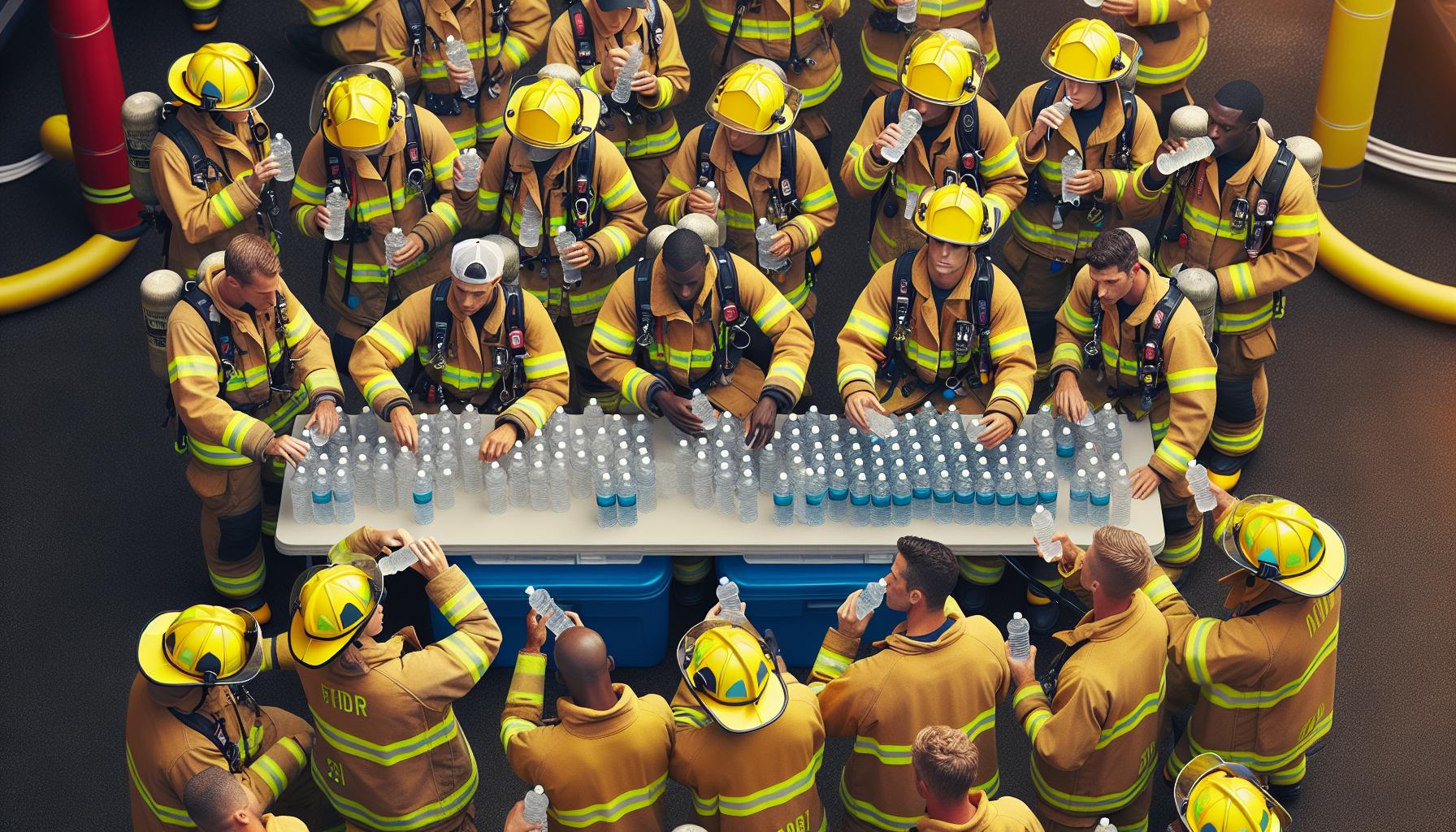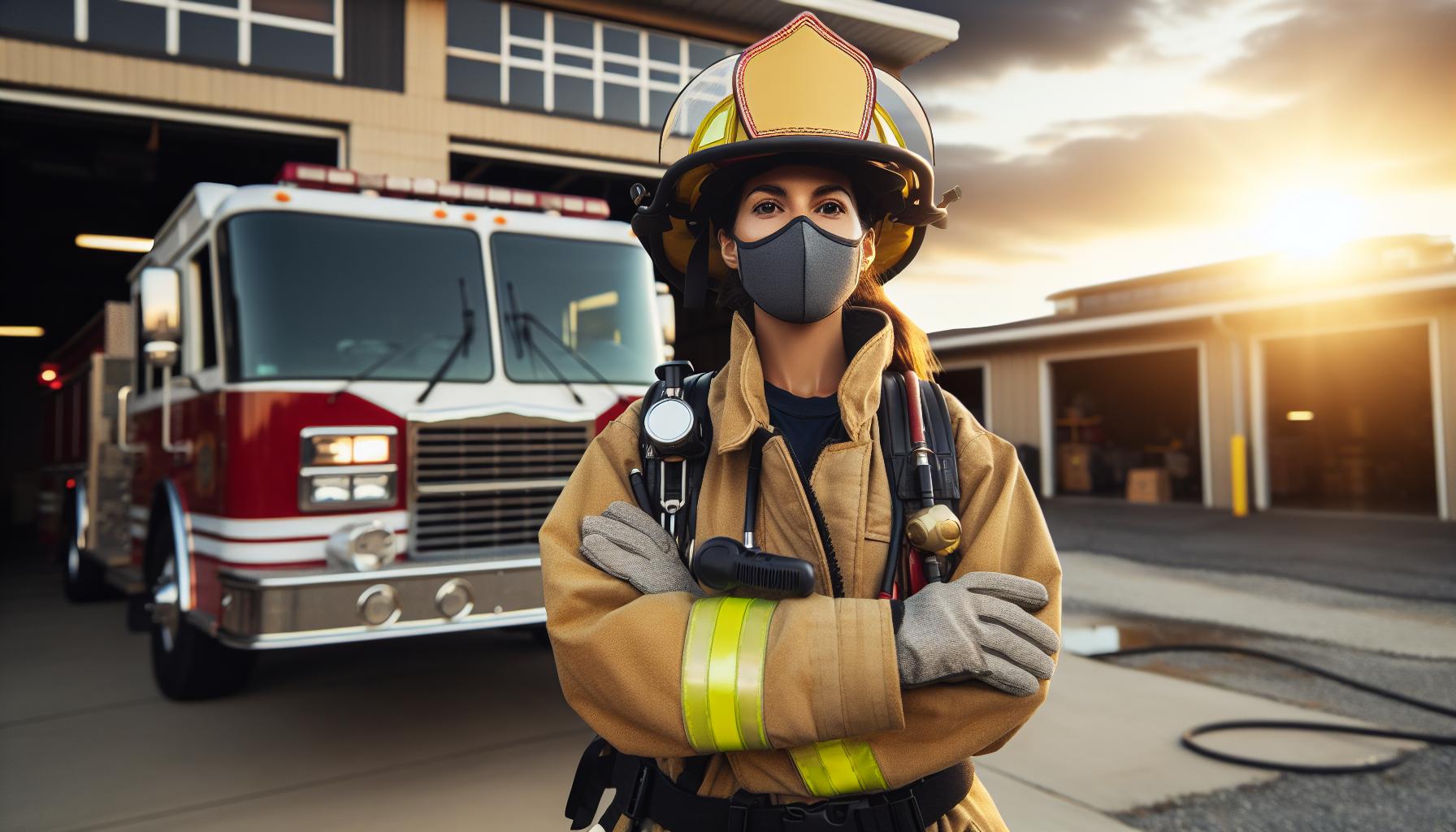Firefighters aren’t just heroes battling blazes – they’re high-performance athletes who need premium fuel to stay at the top of their game. Fire science nutrition combines cutting-edge sports science with the unique demands of emergency response to keep these brave men and women ready for action.
From marathon shifts to intense physical exertion while wearing 75 pounds of gear, firefighters push their bodies to the limit. That’s where strategic nutrition plays a crucial role. Modern fire departments are discovering that proper fueling isn’t just about staying energized – it’s about enhancing performance, speeding recovery and maintaining long-term health in one of the world’s most demanding professions.
Fire Science Nutrition
Fire science nutrition combines scientific principles of sports performance with the unique physiological demands of firefighting. It focuses on optimizing nutritional strategies to enhance firefighter performance safety recovery during emergency operations.
Understanding Metabolic Demands of Firefighting
Firefighting activities create intense metabolic stress on the body, requiring 12 calories per minute during active fire suppression. The combination of heavy protective gear (weighing 45-75 pounds) extreme heat exposure elevates heart rates to 85-100% of maximum capacity. Core body temperature rises by 2.5-3.5 degrees Fahrenheit during typical fire operations, leading to significant fluid electrolyte losses through sweating. Physical exertion in these conditions depletes glycogen stores within 30 minutes, affecting strength endurance capabilities.
Key Nutritional Needs for Firefighters
Firefighters require 3,000-4,500 calories daily, with specific macro-nutrient ratios: 55% carbohydrates, 25% protein 20% healthy fats. Essential nutrients include:
- Carbohydrates: 6-10 grams per kilogram of body weight for sustained energy
- Protein: 1.6-2.0 grams per kilogram to support muscle recovery repair
- Electrolytes: 500-700mg sodium per hour during active operations
- Water: 1 liter per hour during fire suppression activities
- Antioxidants: Vitamins C E to combat oxidative stress from smoke exposure
These nutritional requirements support cardiovascular function, thermal regulation muscle performance during emergency responses.
Optimal Macronutrient Balance

Fire science nutrition emphasizes precise macronutrient ratios to support the intense physical demands of firefighting. The balance targets specific performance goals while accounting for the unique metabolic stress experienced during emergency operations.
Protein Requirements
Firefighters require 1.6-2.0 grams of protein per kilogram of body weight daily to maintain muscle mass and support recovery. Complete protein sources include lean meats, fish, eggs, dairy products. Protein timing plays a crucial role in muscle repair, with 20-30 grams consumed at 3-4 hour intervals throughout the day. Supplemental protein shakes offer convenient options during long shifts when whole food sources aren’t accessible. Essential amino acids from varied protein sources help prevent muscle breakdown during extended operations.
Strategic Carbohydrate Intake
Carbohydrates serve as the primary fuel source during high-intensity firefighting activities, requiring 6-10 grams per kilogram of body weight daily. Complex carbohydrates like whole grains, quinoa, sweet potatoes provide sustained energy release. Quick-acting carbs from fruits, sports drinks deliver immediate energy during emergency responses. Pre-shift meals focus on slow-digesting carbs consumed 3-4 hours before activity. During extended operations, portable carb sources like energy gels maintain blood glucose levels.
Essential Fats for Recovery
Healthy fats comprise 20% of a firefighter’s daily caloric intake, supporting hormone production and reducing inflammation. Omega-3 fatty acids from fatty fish, walnuts, flax seeds enhance cognitive function and cardiovascular health. Medium-chain triglycerides provide rapid energy without digestive stress. Monounsaturated fats from avocados, olive oil, nuts aid in vitamin absorption and joint health. Fat intake timing focuses on pre-shift and recovery meals rather than during active operations.
Hydration Strategies

Proper hydration remains essential for firefighters to maintain peak performance during emergency operations. Dehydration affects cognitive function physical stamina leading to decreased performance increased risk of heat-related illnesses.
Pre-Shift Hydration
Firefighters require 16-20 ounces of water 2-3 hours before their shift begins. Pre-shift hydration involves monitoring urine color ensuring it’s pale yellow throughout the day. Research indicates consuming electrolyte-enhanced beverages increases fluid retention by 15% compared to water alone. A strategic pre-hydration protocol includes:
- Drinking 500-600ml of water upon waking
- Consuming sodium-rich foods with breakfast
- Adding electrolyte supplements to water
- Monitoring hydration status using urine color charts
- Maintaining consistent fluid intake in 8-10oz servings
- Rotating personnel through rehabilitation sectors every 45 minutes
- Consuming 16-32 ounces of electrolyte solution during rest periods
- Using sports drinks with 6-8% carbohydrate concentration
- Implementing mandatory hydration stations at emergency scenes
- Tracking fluid intake using standardized measurement systems
| Hydration Timing | Fluid Amount | Type of Fluid |
|---|---|---|
| Pre-shift | 16-20 oz | Water + Electrolytes |
| During Activity | 8-16 oz/15-20 min | Sports Drink |
| Recovery Period | 24-32 oz/hour | Water + Electrolytes |
Meal Timing for Peak Performance

Strategic meal timing enhances firefighter performance through targeted pre-shift fueling and post-incident recovery nutrition. Proper timing of nutrient intake supports energy levels, mental focus and physical readiness during emergency operations.
Pre-Shift Nutrition
Pre-shift meals provide sustained energy for firefighters 2-3 hours before duty starts. A balanced meal contains 400-600 calories from complex carbohydrates like oats quinoa or sweet potatoes paired with 20-30 grams of lean protein. Adding healthy fats such as avocado or nuts maintains stable blood sugar levels throughout the shift. Small snacks including fruit with nut butter or yogurt with granola offer quick energy 30-60 minutes before anticipated physical activity. Portable nutrition options like energy bars trail mix or protein shakes ensure firefighters stay fueled during unpredictable emergency calls. Caffeine intake remains limited to 200-300mg 60-90 minutes pre-shift to optimize alertness without causing dehydration.
Post-Incident Recovery Nutrition
Post-incident nutrition replenishes depleted energy stores within 30 minutes after emergency operations. A 3:1 ratio of carbohydrates to protein accelerates muscle glycogen restoration muscle repair. Recovery meals deliver 60-80 grams of carbohydrates combined with 20-25 grams of protein through options like chocolate milk smoothies or protein bars. Essential electrolytes including 500-700mg sodium 300-400mg potassium replace losses from heavy sweating. Anti-inflammatory foods such as tart cherries berries leafy greens reduce oxidative stress from smoke exposure. Liquid nutrition proves especially effective when appetite decreases after intense physical exertion. Firefighters incorporate easy-to-digest proteins like whey isolate egg whites or plant-based options to speed recovery between calls.
Supplements for Firefighters
Firefighters require specific supplements to support their high-performance demands and combat occupational stressors. These supplements complement a balanced nutrition strategy to enhance recovery optimize performance during emergency operations.
Evidence-Based Supplementation
Research validates several key supplements for firefighter performance. Creatine monohydrate enhances power output muscle recovery with a recommended daily dose of 5 grams. Omega-3 fatty acids (2-3 grams daily) reduce inflammation markers improve cardiovascular health. Vitamin D3 (2000-4000 IU daily) supports immune function bone health particularly important for shift workers with limited sun exposure. Beta-alanine (3-5 grams daily) increases muscular endurance reduces fatigue during extended operations. Electrolyte supplements containing sodium potassium magnesium support hydration status during intense physical activity.
Safety Considerations
Third-party testing certification proves essential for supplement safety quality. NSF Certified for Sport USP verified supplements guarantee product purity potency. Supplements must not contain stimulants that could elevate heart rate blood pressure during fire operations. Products require clear labeling of active ingredients potential allergens to prevent adverse reactions. Firefighters taking medications need medical clearance before starting any supplement regimen. Regular monitoring of supplement effects ensures optimal dosing prevents potential interactions. Storage conditions temperature control maintain supplement efficacy safety especially in fire station environments.

